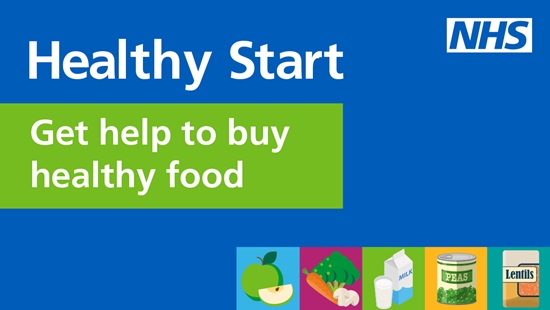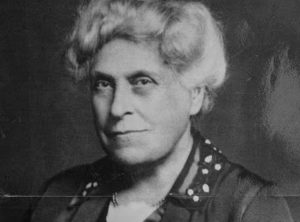As the cost-of-living crisis mounts this winter, families with young children will suffer. Feeding and clothing your kids isn’t an optional extra, and with food inflation standing at 14.6% in the 12 months to September, parents are frightened and anxious. Contradictory messages from government about benefits uprating this autumn exacerbate concerns, both for those out of work and those in low paid employment. But whatever the chancellor decides about benefit rates in his financial statement in 2 weeks’ time, we can all agree that those who ought to receive support from our social security system should get the benefits they’re entitled to.
Yet take-up of a benefit that’s specifically targeted at low-income pregnant women, new mums and their young children reaches only around 60% of those who should receive it. The Healthy Start scheme is available to those on incomes of less than £408 per week, and is available from the tenth week of pregnancy, and for children up to the age of 4. It provides ‘vouchers’ to pregnant and new mothers, their babies and young children for the purchase of fruit and vegetables, milk, and vitamins. The scheme helps family budgets stretch a bit further, has been shown to increase the amount spent on fruit and veg, improves nutrition, and reduces the impact of child poverty.
The benefits of a nutritious diet during pregnancy, for new mothers, their babies and young children are numerous and well known. Low birth-weight as a result of poor maternal diet is associated with long-term adverse outcomes for children. Pregnant and nursing mothers need a nourishing diet to protect their own health and that of their babies. As children grow up, a nutritious diet supports their learning and development. Yet too many children are going hungry, or are forced to rely on cheaper, filling but poor quality food, while mothers skip meals in order to provide for their children.
Healthy Start could make a real difference to those families, and it had been hoped digitalisation of the benefit would boost take-up. But a recent switch from paper vouchers to prepaid cards appears to have exacerbated problems, increasing cost, and reducing choice and access. Families have reported long waits to get through to the telephone helpline – especially costly for those with pay-as-you-go mobile phones. Meanwhile, those applying online have faced unaffordable data charges.
The prepaid cards can be used in retail outlets displaying the Mastercard sign, but that has meant that some outlets that previously accepted the vouchers no longer do so, including small independent stores selling culturally appropriate foods, market stalls, and sales at the ‘farm gate’, which can play a vital role in the rural economy. Families who relied on these outlets now face barriers to using the benefit.
And while efforts have been made to increase take-up through publicity campaigns supported by government and urged by industry bodies such as the Association of Convenience Stores, much more action is needed.
Addressing these challenges wouldn’t be that difficult if the government had the will to do so. But the response of then minister Maggie Throup to my recent Westminster Hall debate was disappointing. Ministers had no plans to review eligibility for the benefit. There were no plans to increase its value, despite soaring inflation, and although charity Maternity Action has pointed out that low rates of maternity pay mean new mothers are expected to survive for 33 weeks on not much more than a third of women’s earnings, just at a time when they face additional costs associated with parenthood. There were no new plans to promote Healthy Start more widely to increase take-up.
Fortunately, businesses, social enterprises, charities, local and regional government have stepped in, despite ministers’ inertia. The Greater Manchester Poverty Action Group is piloting an initiative with Kellogg’s to give parents access to a financial inclusion officer in informal settings such as school breakfast clubs – signposting to Healthy Start will be part of the offer. The Bread and Butter Thing, which provides surplus food at a fraction of the cost, accepts Healthy Start, while some retailers, such as Iceland and the Coop, have topped up their customers’ Healthy Start vouchers. And Feeding Britain has suggested a model for automatic registration of those eligible for the benefit when they apply for universal credit, with an opt-out option for those who don’t wish to take advantage of it.
That could result in a significant increase in take-up of Healthy Start support, and is the basis of the bill I’ll be presenting to parliament. My bill would empower all parts of government to work together so that eligible families are automatically registered. While the government continues to throw obstacles and objections in the way of this proposal, I simply don’t believe they’re insurmountable. I’m delighted to have the support of dozens of colleagues from across the House for my bill, and I stand ready to work with national, regional, and local government, business bodies, retailers and the charity and voluntary sector, to bring its aims to fruition.
Kate Green is the Labour MP for Stretford and Urmston.




